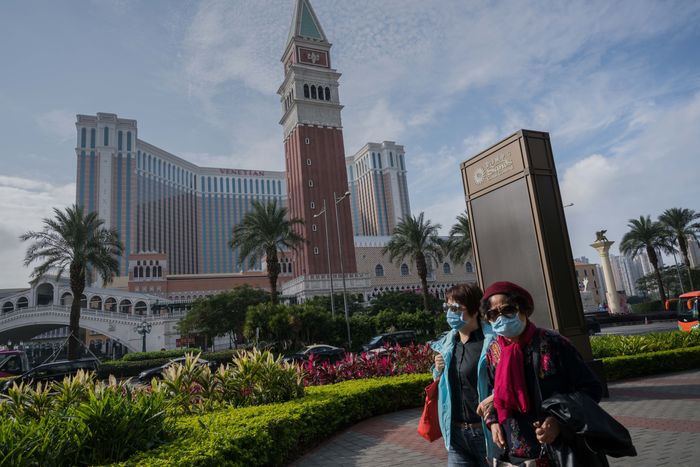Some 200 Chinese companies are under threat to be booted from U.S. stock exchanges because they use China-based auditors whose work can’t be inspected by U.S. regulators. The move is designed to protect U.S. investors, lawmakers say.
More than 130 U.S. companies use these same Chinese auditors for significant parts of their audits, according to research by three accounting professors.
Their research shows that companies audited by these Chinese firms face higher risks of accounting problems.
A 2020 law, known as the Holding Foreign Companies Accountable Act, threatens to delist companies if their principal audit firm’s work can’t be inspected by U.S. regulators. China won’t allow those inspections. The delisting can begin at the start of 2024. The law doesn’t affect U.S. companies audited by Chinese firms.
The delisting threat, which affects companies whose stocks are valued at roughly $2 trillion globally, follows escalating political tensions between the U.S. and China. Accounting scandals at Chinese companies that were listed on U.S. exchanges, including Luckin Coffee Inc., have highlighted the risks posed to investors from this gap in oversight.
More than one in three U.S. public companies use overseas accounting firms to do at least 5% of their audit, measured by the time spent on the audit work, the accounting professors’ analysis found.
China-based accounting firms were the second most widely used overseas auditors, trailing the U.K., according to the analysis of regulatory filings for fiscal 2018.
The analysis looked at countries that blocked U.S. regulators from inspecting the audits done by their firms. It combined that with countries that have a weak rule of law, meaning uneven enforcement of laws. Of the top 15 countries for overseas auditors used by U.S. countries, China was the only one that ticked both boxes.
A company that uses audit firms based in countries with a weak rule of law, such as China, runs a greater risk of accounting problems, the study found. Using such an auditor for 15% of the work, for example, increased the risk of a restatement by 32% and of a late filing by 39%, compared with not using an auditor from a weak-rule-of-law country.
Auditors in countries with a weak rule of law, such as China, “may be more likely to misunderstand or misapply the lead auditor’s instructions and it may be difficult to trust their work,” said Jenna Burke, an accounting professor at the University of Colorado Denver, who wrote the study with Rani Hoitash of Bentley University and Udi Hoitash of Northeastern University.
SHARE YOUR THOUGHTS
What will be the impact of forcing Chinese companies to leave American stock exchanges? Join the conversation below.
The risk of restatements and late filings increases as the proportion of the audit done by a Chinese auditor increases, the accounting professors’ analysis found.
Some big U.S. companies use China-based auditors for one-quarter or more of their audit, regulatory filings show.
Casino company Las Vegas Sands Corp. LVS -0.71% , with its big operations in the Chinese territory of Macau, had as much as 30% of its audit of its 2020 financial statements done by the Hong Kong member of Big Four firm Deloitte’s global network, according to regulatory filings. The Public Company Accounting Oversight Board has been unable to inspect a Hong Kong-based audit firm since 2010, the audit watchdog said last year.
Las Vegas Sands in 2016 paid $9 million to settle Securities and Exchange Commission allegations that its Chinese operations had poor accounting controls from 2006 through at least 2011. A spokesman for Las Vegas Sands, which settled the SEC action without admitting liability, declined to comment. A representative of Deloitte didn’t respond to a request for comment.

Las Vegas Sands resorts in Macau. The firm in 2016 settled SEC allegations that its Chinese operations had poor accounting controls.
Photo: Billy H.C. Kwok/Bloomberg News
Big U.S. companies with global operations often use multiple accounting firms for their audit. Walmart Inc. WMT -1.89% used 16 overseas accounting firms for the audit of its 2020 financial statements, and those firms combined did 25% to 49.9% of the total audit hours, regulatory filings show. The firms included Beijing-based Ernst & Young Hua Ming LLP, which did 5% to 9.9% of the hours, the records show.
A spokesman for Ernst & Young’s global network and a spokesman for Walmart declined to comment.
A company’s lead auditor—EY’s U.S. arm, in the case of Walmart—typically assumes responsibility for the entire audit. But it is reliant on numbers from overseas firms. “Academic research is pretty consistent that when the PCAOB goes in to do inspections of overseas audit firms, audit quality goes up,” said Joe Schroeder, accounting professor at Indiana University.
Write to Jean Eaglesham at [email protected]
Copyright ©2022 Dow Jones & Company, Inc. All Rights Reserved. 87990cbe856818d5eddac44c7b1cdeb8








